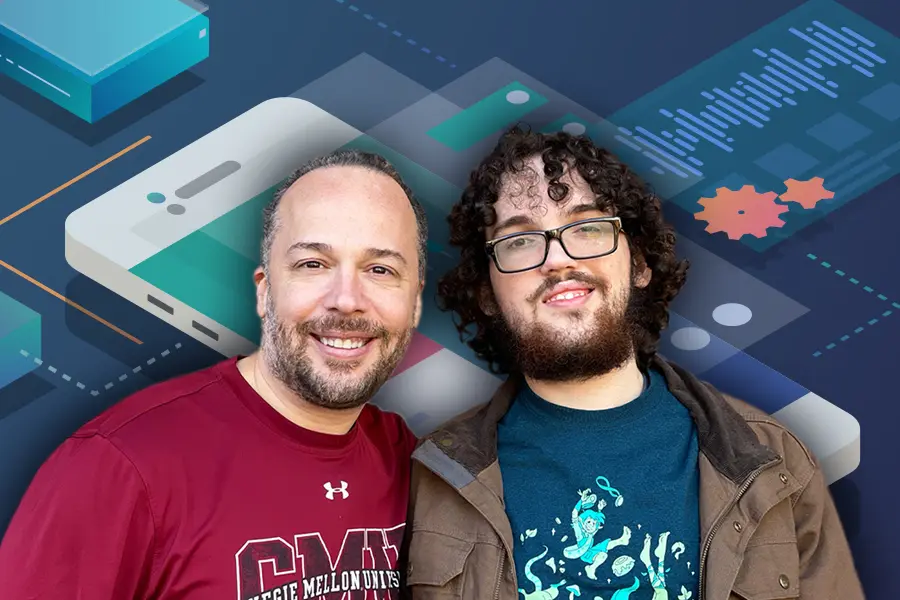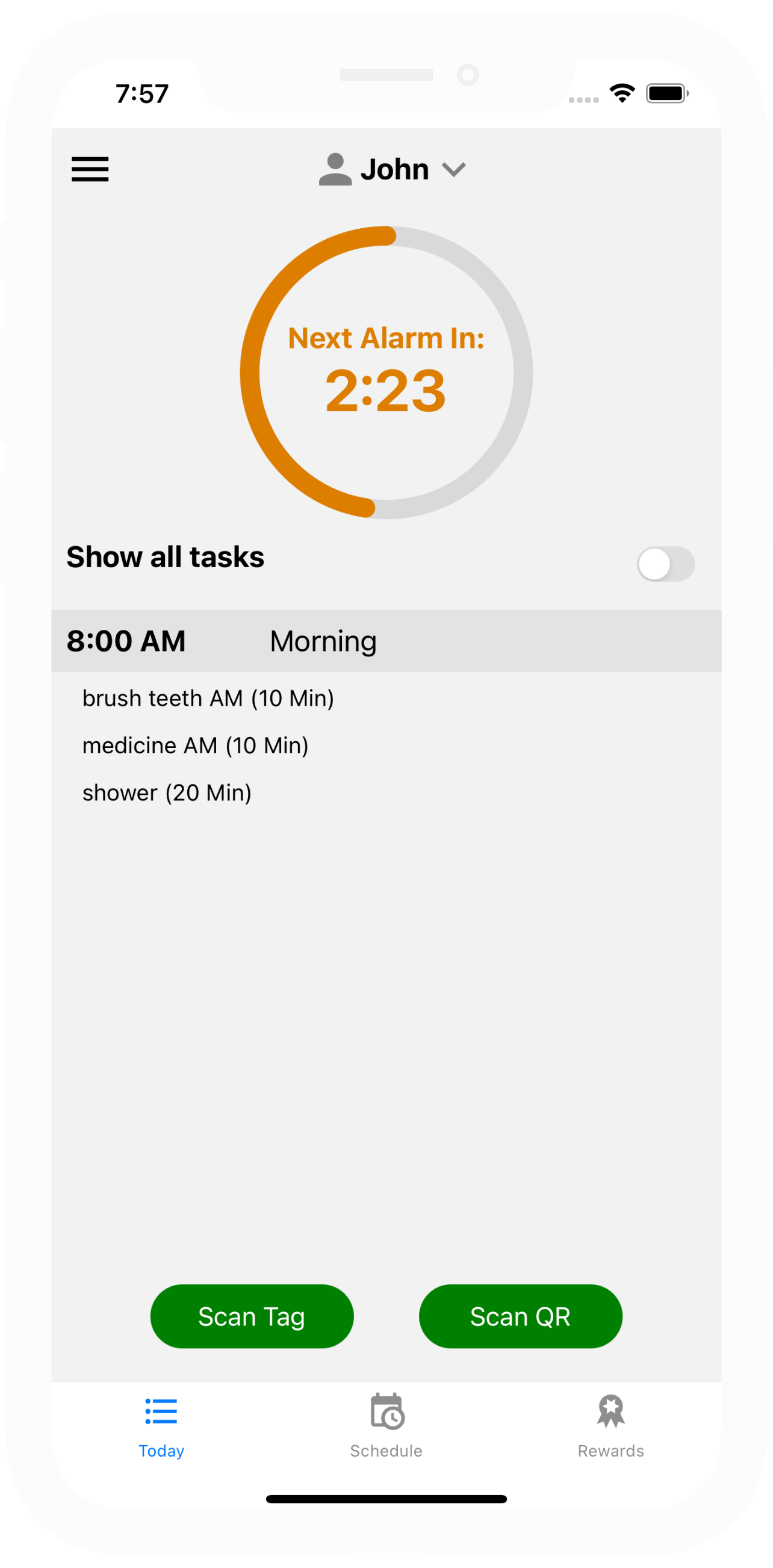
Increasing Independence
CMU alumnus’s app uses technology to assist adults with autism and their caregivers
By Hilary Daninhirsch
Carnegie Mellon University alumnus Gerard Decatrel solves problems.
He’s done so at Morgan Stanley as a foreign exchange options trader, as one of the first Tartans to earn a certificate in computational finance mathematics and as lead developer for the Intercontinental Exchange in his current role.
So when he realized that his son, Justin, who has high-functioning autism, needed a bit of organizational help to manage his day-to-day tasks, Gerard went to work designing a solution: Scandu.
Scandu is an app that keeps Justin on track and on time.
“Apps are my love language; they are what I do. I make apps for people to make their lives better,” says Gerard, who graduated from the School of Computer Science with a bachelor’s degree in mathematics and computer science in 1993.
On Task with Fewer Worries
Justin was not diagnosed with autism and ADHD until just before he graduated high school — leaving him without the years of support that prepare many adults with autism for life after graduation. Gerard enrolled Justin at Emory Autism Center where he started to work with a therapist in the center’s myLIFE life skills program.
“Justin gets distracted easily. If he gets sucked into the internet, he loses all track of time and gets off task,” Gerard says. “He also gets lost easily, and when he was taking the bus on his own in a strange city, I was constantly checking my phone to see where he was.”
Gerard needed a way to keep his son on task but limit his own worries. As his son is very prompt-dependent, Gerard started thinking of ways to help him via an app.
“There are a ton of apps out there that will tell you where someone is and when they leave, but I wanted the opposite,” Gerard says. “I didn’t want to be notified if he arrived and left but only if he did not arrive or leave on time. I made a prototype of an app for him, and it was great. Before, I was constantly having to check my phone to make sure he was on track. But with this app, it notifies me if something is wrong.”
The app helps keep Justin’s morning routines on schedule: reminding him of the tasks he must complete to get ready before leaving the house like taking his medication and showering and the time window to finish them.
“Each task has a certain time estimate associated with it, and the app knows the deadline by which you need to leave the house,” Gerard says. “For example, you have three tasks that are ten minutes each. If you don’t do any, you’ll get an alarm.”
There are apps that function like to-do lists, but he thought they were impractical for his situation.
“If you click something before you actually do it, it’s not reliable,” he said.
Instead, Gerard integrated NFC (Near Field Communications) technology. He set up tags throughout the house, such as in the bathroom and kitchen, and his son is able to scan the tags with his phone after a task is completed. The app can also use printed QR codes to replicate the same functionality.
Continuous prompting is key to Justin’s success — and Scandu’s as well.
“Once Scandu sees he’s falling behind, it prompts him every five minutes, and it prompts me,” Gerard says. “I can know if he’s running late or skipped a task and can decide when I need to intervene with a phone call.”
“The idea was to cut down on negative interactions and increase the support he needs to help him gain independence, and it did that.”
The app has a reward system, where a value can be assigned to each task, something that Justin’s therapist suggested, and it shows a week-to-week comparison for each task.
“For example, I will see that he took his medications in the morning seven times one week, but the next week, he only did it six times,” Gerard says. “You can see the trend and see improvement or what tasks still need help.”
“When I got to CMU, they told us, ‘We are going to become the No. 1 computer science program in the country, and you guys are going to do the work to make us No. 1.’ What they taught us was so cutting edge that it really served me in a fast-moving field. I felt like I was 15 years ahead.”
Helping Others
Realizing that the app would help many others with autism and/or ADHD, Gerard did a beta test with the Emory Autism Center.
“It’s one thing to make an app hard-coded for one person; it’s an order of magnitude harder to make an app anyone can use and get it on the app store,” Gerard says.
The app had a soft launch in summer 2021 and to date, approximately 700 users have downloaded it. He’s recently updated the technology, so that it can support both iOS and Android devices.
Gerard plans to market Scandu to adults with autism and ADHD, but he sees how it also could be a helpful technology for older adults and their caregivers.
“Right now, I’m in the process of turning my minimum viable product into a minimal awesome product that looks cool, has smooth onboarding, a slicker website and optimized app store pages,” Gerard says.
He feels his time at CMU prepared him well for his career, and for his ultimate ability: to create an app to help his son and others with autism or ADHD.
“When I got to CMU, they told us, ‘We are going to become the No. 1 computer science program in the country, and you guys are going to do the work to make us No. 1.’ What they taught us was so cutting edge that it really served me in a fast-moving field. I felt like I was 15 years ahead.”
